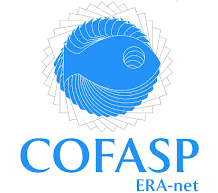JPI Oceans
The Joint Programming Initiative Healthy and Productive Seas and Oceans (JPI Oceans) is a coordinating and integrating platform, open to all EU Member States and Associated Countries. While bringing together the interested Member States and Associated Countries the JPI Oceans aims to add value by:
- avoiding fragmentation and unnecessary duplication
- planning common and flexible initiatives
- facilitating cooperation and foresight
- establishing efficient mechanisms for interaction and knowledge transfer between the scientific community, industry & services, and policy makers at high level in order to solve the grand challenges more effectively.
In its role as a coordination platform, JPI Oceans will focus on making better and more efficient use of national research budgets, which represent 85% of the marine-maritime funding within Europe. One of the JPI’s goals is to develop joint research programs in which countries can be involved on a voluntarily basis (variable geometry). Participating countries will also decide what contribution to make: this may include institutional, project-related or new funds.
For more information on JPI Oceans, click here
SEAS-ERA
The marine environment has a special relevance for Europe. Activities such as maritime transport, oil and gas extraction, use of wind and tidal power, shipbuilding, tourism, as well as the extraction of live resources – fishing, aquaculture or genetic materials – are essential for meeting the European economic and social objectives indicated in the Lisbon Agenda. Between 3%-5% of Europe‘s Gross Domestic Product is gene rated from sea-related activities while 90% of all the external European (European Commission (2007) —Maritime Facts and Figures“) trade is originally maritime. As a result, European Seas and Oceans are considered as crucial assets.
In this respect, the European Marine Strategy and the draft Maritime Spatial Planning Strategy, in development, stress the need to achieve the full economic potential of oceans and seas in harmony with the marine environment, on the basis of a concerted definition of research needs and priorities leading to a more effective integration of knowledge and resources.These strategies call particular attention to:
- Promoting new and interdisciplinary skills and innovation capacities
- Integration across marine and maritime research disciplines
- Optimise the use of existing research infrastructures
- Foster knowledge and technology transfer
- Promote synergies at national & regional level
- Mobilise national and regional funding to reach a critical mass to address marine research challenges
For more information on SEAS-ERA, click here
SUSFOOD
SUSFOOD is the acronym for SUStainable FOOD production and consumption. The European transnational research cooperation project consists of a network of 25 partners from 16 European countries.
As an ERA-Net, SUSFOOD aims at setting up a European strategic research agenda by increasing cooperation and synergy between the European partners. SUSFOOD will enhance collaboration and coordination between research programmes on sustainable food production and consumption. The strategic goal of SUSFOOD is to reinforce the scientific cooperation between EU member and associated states in order to maximise the contribution of research to the development of food systems aiming at more sustainability from production to consumption.
SUSFOOD website will be kept active for a while at the end of SUSFOOD project, in order to communicate on funding projects.
For more information on SUSFOOD, click here
MARTEC II – Maritime Technologies
An ERA-NET on maritime technologies (MARTEC) began with 12 ministries and funding organisations from 9 European countries in 2006. MARTEC quickly formed a strong network and has launched calls in 2008, 2009 and in 2010. So far applications for proposals have involved participants from 8 countries, and projects funded total about 14 million Euros. Given the success of the first phase, 30 ministries and funding organisations from 25 countries are involved in MARTEC II now.
MARTEC II will move from a basic understanding of each other’s procedures and priorities to real information exchange based on trust and actively looking to work with partners across national borders.
For more information on MARTEC II, click here
MARIFISH
MariFish was an ERA-NET funded by the EU FP6 (2006-2011). MariFish brought together the major European national funders of marine fisheries research to form an effective, working partnership. MariFish completed 5 collaborative programmes and one joint call.
For more information on MARIFISH, click here
Other useful links:
SCAR-FISH prepared a discussion paper regarding prioritising of science and innovation in support of the CPF, with the contribution from relevant stakeholders responsible for management and science. The input received was processed into a first final report to be considered when addressing Horizon2020 calls for proposals. Link to SCAR-FISH
PLATFORM is a network to ensure better coordination and knowledge transfer between different ERA-Nets within the Knowledge Based Bio Economy (KBBE). Link to PLATFORM
BONUS EEIG – the objective is to integrate the Baltic Sea system research into a durable, cooperative, interdisciplinary and focused multinational programme in support of the regions sustainable development. BONUS launch several calls. Link to BONUS
